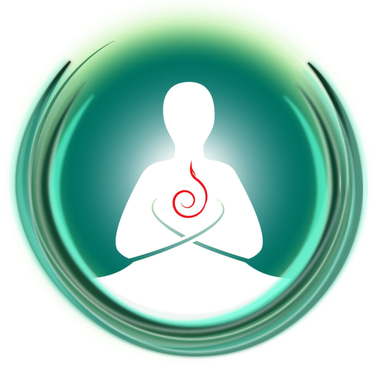Should we trust that voice in our head?
We hear a voice in our head and we indulge it, but should we?
CLZúñiga
10/15/20253 min read


Admit it—you hear a voice in your head just like the rest of us do. That voice narrates our sensory experiences into relatable, sharable thoughts and tells us what to do. We hear it in our private mind space but should we always heed it?
The voice in our head
I'm not speaking about voices we might hear in our head due to a mental breakdown, illness or hallucination. We tend to view those voices as something altogether different, though some argue that notion.
I'm speaking about our inner voice—the one that lives in our mind and starts building an elaborate system of neural connections the day we're born to help us navigate our reality and communicate with others. Over the years humans have given many names to that voice—thinking mind, conditioned mind, ego mind, wounded mind, conscious mind, and so on. Call it what you will, it's all the same mind in the end.
Let's just call it our thinking mind. Most people agree that our thinking mind is basically never silent. We are taught to rely on our thinking mind and to depend on its knowledge to guide us safely through life as we grow up. It helps us solve problems, work out dilemmas, learn new things, etc. Without it we are limited in terms of what we can achieve.
The voice of our thinking mind sounds like us and is built over time in the form of narratives based on our life experiences. If we burn a finger on a candle flame as a child, for example, we avoid touching fire from that moment on. Why? Because in that instant our thinking mind creates a narrative about what happens when we touch fire (that it burns, hurts, is dangerous, etc.)...and files that knowledge away as part of our rapidly-expanding neural network.
We have an infinite number of such narratives in our thinking mind, one for every experience we've ever had, witnessed and heard about. All our current and future experiences are interpreted through this network of narratives. They auto-filter our reality so we don't have to expend our limited energy doing so in order to function. This filtering comes with its own set of problems but that's a topic for another blog [See Making sense of the Shadow and Ditching the past that binds us and What's running your life? and Humans got it wrong.]
The other voice
If we listen carefully, we can hear another voice inside, too. It comes from a deep place within our heart and soul, speaks only when necessary, may not sound like us, and may be more of a sense than a sound. It's the voice of our intuition or intuitive wisdom—that wellspring of knowing we're born with, as old as existence itself (as opposed to knowledge we gain while growing up).
The voice of our intuition sounds quite different from our thinking mind. It can be soft and subtle but it is also direct and hard to miss. It doesn't give us narratives, explain, rationalize, argue or question things. It simply speaks—specific, steady and clear: Close the windows. Take your umbrella. Leave now. Wear your tennis shoes. Go this way. Get out of the car. If we're paying attention we hear it. If we're wise, we heed it.
Many women I work with say they don't know their intuitive voice, can't hear it, don't trust it or don't listen to it. I can raise my hand here because I'm guilty of ignoring mine sometimes too, much to my regret. There are times when I argue with mine, meaning I hear it but blow it off and allow my thinking mind's narratives to rule. Those are the days when, for instance, I get caught in an unexpected rain shower without an umbrella (Intuition: Take your umbrella /Thinking mind: It's not going to rain; the sun's out and there's not a cloud in the sky.) or find myself in sandals when I need tennis shoes (Intuition: Wear your tennis shoes /Thinking mind: We're not going anywhere I'll need tennis shoes; we'll be inside.).
The difference between the two voices
The rationalizing narrative is our thinking mind trying to justify our actions based on a lifetime of conditioning stored in its neural net. The clear directive is our intuition or intuitive wisdom simply knowing what needs to be known based on an infinite well of being. Once we build a trusting relationship with our intuition, learning to distinguish these two voices can help us navigate our lives more simply with less drama and more confidence.
As you move through your day, notice if your intuitive voice speaks to you. Begin to listen for it. Notice how quickly your thinking mind may dismiss what it says. Begin to practice small ways of heeding your intuitive voice and intuition as a way of growing a trusting relationship with them the way you now trust your thinking mind's narratives. Notice the differences and how things shift as you bring more faith to your intuitive voice and intuition.
Remember that if we change nothing, nothing changes. Happy Trails!
CZ Mentoring, LLC
Transforming lives through unique and female-centric coaching solutions.
Subscribe to my occasional email for insights, updates and community.
© 2010-PRESENT. CZ Mentoring, LLC. All rights reserved.
reach out: Drop me a line to connect.
No spam. No lists. Always private.
